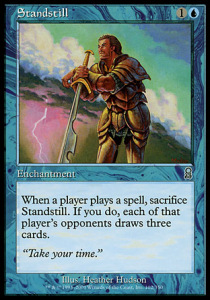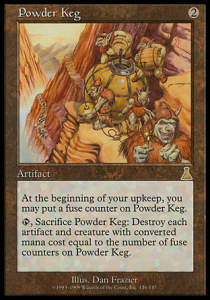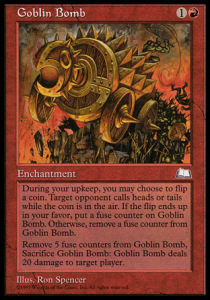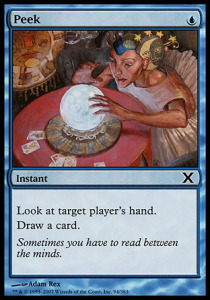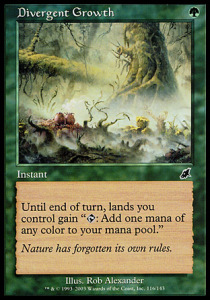(Given how much attention Hipsters is paying to Khans of Tarkir Limited, Zach is continuing to explore non-Magic game design and how it relates to Magic.)
(Also, he’s writing about game design for purposes unrelated to Hipsters and felt this was an appropriate followup to the previous Avalon article. Enjoy!)
Previously, on X-Men, er, Drawing Live, we explored The Resistance: Avalon and how the appearance of bad luck can be due to a lack of awareness of a game’s depth. I’d like to return to Avalon, this time with a critical eye.
Avalon is a thoroughly enjoyable game (I’ve played it almost every week for the past several months), but it is not without its shortcomings. I’d like to both deconstruct and critique the game, as well as recommend improvements/alternatives. I would like to stress that I do this out of love for the game and a desire for players to enjoy it to the fullest, not to tear it down. I would also like to emphasize that these opinions strongly the various playgroups I play with.
If you aren’t familiar with the rules, I’ve created a mostly comprehensive guide here. With that said, here’s where I feel Avalon can be improved.
Avalon is a long game. The box suggests games will take thirty minutes, however games routinely take well over an hour. This is hardly surprising; while the mechanical components of the game (setting up, voting on teams, voting on team success/failure, and using the Lady of the Lake) are quick to perform, the real meat of the game is playing politics and watching other players (which takes far longer to accomplish, particularly if you’re taking it seriously).
Now, length isn’t a problem in and of itself—if it were, we’d never attend Magic Grand Prix or even draft. Length becomes a problem when boredom sets in, or when tension builds up for too long without release. I believe that the latter is a necessary component of Avalon.
Avalon is a very tense game. Players constantly watch one another, scrutinizing every vote, glance, and eyebrow twitch, trying to glean information about each other’s alignment and role (and often accusing one another of having one or another). Information rarely enters the system to confirm or deny these suspicions and allegations. When information does enter the system, it is either noisy (when a team mission fails, it’s unclear which players voted for failure and whether any evil players voted for success) or uncommunicable (when you look at someone’s alignment from the Lady of the Lake, you cannot prove what you witnessed—only pit your word against someone else’s). This persistent lack of information and credibility does an excellent job of building tension, engagement, and excitement. However, this tension never releases until the game ends and information finally floods the system.
Moreover, Avalon adds tension as it moves towards its conclusion. With each mission, one team moves inexorably towards losing the game (and the other, towards victory). However, the scant information available rarely helps the good team solidify its lead (and the evil team gains no information over time), keeping the game’s outcome uncertain until the final mission (or the game abruptly and unexpectedly ends on an earlier mission). Furthermore, Avalon binds players from revealing information that would push the game to a speedy conclusion: if the good team ever reveals (or fails to obscure) the identity of Merlin, the only good character with unambiguous information, they will unambiguously lose the game (when evil assassinates her at the end). If an evil player reveals himself, he makes the game harder for his entire team. All of this serves to build tension, but none of it serves to release it.
So, Avalon is a tense game. It builds tension over time, it doesn’t release tension until its end, and it lasts over an hour. What could go wrong?
Plenty.
The constant building of tension, while it is engaging and creates stakes, can push players to call each others’ characters into question, rather than their words. Games tend to get personal. Players yell at one another. Players silence each other. Feelings are hurt. When a game strains friendships and creates fights, everyone loses. In comparable but shorter games, such as One Night Werewolf, tension releases every five minutes (because games are short), and games rarely end in fights. In Avalon, the game goes on so long, so much is at stake, and people are so invested, that players are predisposed to be more confrontational.
Tension, while a good thing, can be dangerous in excess. Too much tension, with too little release, leads to tense social situations, and tense social situations make for uncomfortable gaming.
A second weakness of Avalon is its information disparity. Hidden information is an excellent tool in game design—yet again, we can look at to Magic to see how (Gitaxian Probe is much stronger than Street Wraith because it reveals hidden information, even though it’s sorcery speed and can be countered).
In Avalon, information is doled out almost entirely at the beginning of the game (when you receive your role), and very unevenly (a few roles know most of the information, and almost all of them are on the same team—evil). Most players know either nothing or very little about other players’ roles. Combine this lack of initial knowledge with the little information that enters the system over the course of a game and consider that games often last longer than an hour. Several players know next to nothing (with certainty) for over an hour, while several players know far more (and learn little new information) over the same period of time. The initial information disparity does not change much over the course of the game. In Avalon, information is power—the more you have, the better you can nominate, vote for, and participate in team missions—and players with more information will be better able to win. Accordingly, one’s ability to play well (or at least, to play well easily) depends heavily on the role they are initially and randomly assigned.
I acknowledge that much of the fun of Avalon is in discerning hidden information through induction and deduction. However, that doesn’t change the fact that certain roles are disproportionately powerful and that the game does little to balance this inequality. Oftentimes, when the fifth mission of Avalon ends, over half the players at the table are surprised as to who won. Victory is often achieved by good guesswork, rather than strategy. This makes for less satisfying wins, since players may feel that they lack agency and victory or defeat came by chance.
So, how would I go about improving Avalon? I’ll begin by saying that perhaps Avalon doesn’t need to be changed; it’s not perfect (almost no games are), but it’s very, very good as is. If it weren’t a great game, I wouldn’t play it. Obviously, I have frustrations with it, but I have frustrations with Magic and it’s my favorite game. Still, criticism invites construction, so here are my suggestions for how to further modify Avalon.
- Add a time limit for voting on missions (perhaps ten minutes per mission; if no team is chosen at the end of ten minutes or five votes, then the game ends—filibustering would be banned). Games of Avalon can take so long because time is an infinite resource, while missions and votes are finite. If the game is forced to take less time, then it will necessarily be shorter and tension will have less time to build. (This does, however, increase the risk of individual players dominating discussion.)
- Allow more information to enter the system. What if certain evil roles, when they participate in a mission, have to reveal themselves? What if every good character knows something (even if it’s only the identity of another good character)? What if players can change roles in the middle of the game? If more information enters the system over time, then players will have more to base their decisions off of and will accordingly have more agency.
- Create moments to relieve tension. What if there are side-missions that need to be completed (for example, Mordred must participate on mission #2 or evil loses, or if Merlin participates on a mission, then good loses)? Players will have more to focus on than the inevitable end of the game. Each side quest will have its own cycle of tension and release.
That’s all I’ve time for today. I hope you’ve enjoyed this peek into a game other than Magic. If you’d like to see more, I’m more than happy to explore other games or to delve into the design of Magic itself. Otherwise, I’m happy to return to Limited strategy (and perhaps brag about my fantastic teammates in Team Draft League). Until next week, thanks for reading!
—Zachary Barash
Zachary Barash has been playing Magic on and off since 1994. He loves Limited and drafts every available format (including several that aren’t entirely meant to be drafted). He’s a proud Cube owner and improviser, creating entire musicals from scratch every week. Zach has an obsession with Indian food that borders on being unhealthy.


